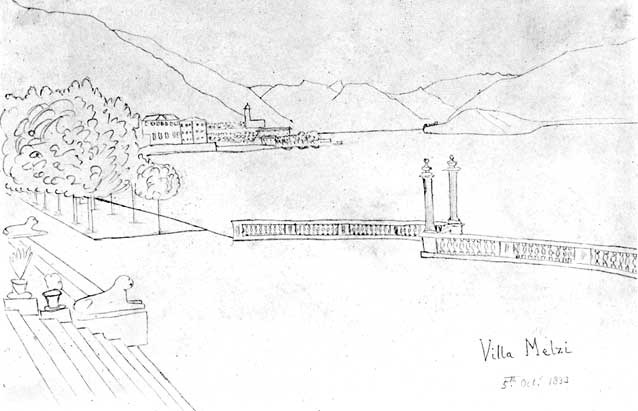Distance Makes the Heart Grow Angrier
Greetings from Hidden Brain! Here’s a little social science to spice up your Halloween.
Podcast Updates
Producing Hidden Brain has taught me a great truth: You can’t go wrong with monkeys. If you missed it, check out our recent podcast episode, The Monkey Marketplace. Besides featuring lots of humorous monkey business, it explores how monkey minds are similar to human minds, and what those similarities reveal about the evolutionary roots of our behavior.
There’s also a cool story about how this 19th century sketch of Italy’s gorgeous Lake Como — a sketch that greatly disappointed the artist, William Henry Talbot — led to the invention of photography.

In turn, psychologist Laurie Santos explains how the invention of photography says something about the remarkable differences between monkey minds and human minds. It led me to see something in my own mind that I hadn’t noticed before.
Subscribe to Hidden Brain today
Lab Notes
Research out of the University of Houston finds something very interesting about Republican attitudes toward President Trump’s proposed border wall between the United States and Mexico. Political scientist Jeronimo Cortina used geocoded data to determine how attitudes toward the wall fluctuate depending on how far Republicans live from the border. You might think, intuitively, that Republicans who live closest to the border would be most in favor of a wall — after all, to the extent a wall is meant to reduce crime and other ills, those who live close to the border should be seeing those problems first-hand. But the data reveal exactly the opposite: Republicans closest to the border are least supportive of the wall, while those who live far from the border are the strongest backers. A Republican who lives a thousand miles from the border is about five times (!) more likely to back construction of a wall than a Republican who lives at the border. Here is how Cortina explains it:
Republicans who live relatively close to the wall understand and experience the “here and now” of the border through direct contact and in terms of specific and unique features that can be experienced only by being in close proximity to it, whereas Republicans far away from the wall are perceptively separated from it and thus understand it in terms of decontextualized, general, and prototypical characteristics that align with both their own partisan beliefs and the nationalized partisan discourse on immigration …
I feel like this is a good example of something we see across the political spectrum in the United States, and increasingly around the world. More and more of us are coming to our policy positions based not on lived experience, but on abstractions. The more we learn about the world only through social media and cable television, the more our picture of the world gets skewed.
Off Book
I haven’t had much time to read for pleasure lately, but I did pick up a copy of Four Letters of Love, a novel by Niall Williams. It features this astonishing opening paragraph:
When I was twelve years old, God spoke to my father for the first time. God didn’t say much. He told my father to be a painter, and left it at that, returning to a seat amongst the angels and watching through the clouds over the grey city to see what would happen next.
Tell me about interesting things you see in the world by hitting reply to this email. If you think your friends would find this newsletter interesting, forward this email to them. They can sign up using this link:
Talk soon —
Shankar

